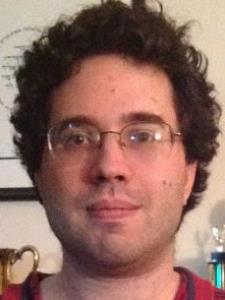Senator Joseph McCarthy is perhaps the most easily recognizable figurehead of the anti-communist movement throughout the mid-20th century, to the degree that the movement itself is often referred to as McCarthyism. Much of the reasons that McCarthy did this come down to most governmental feuds, and his personal values. His initial crusade seemed to exist to discredit any and all of his critics and political opponents by accusing them of being Communists or communist sympathizers, the biggest unanimous enemy of the American people. He used common American values to intensify this, as seen when he spoke at a fundraising event, "...we are engaged in a final, all-out battle between communistic atheism and Christianity. The modern champions of communism have selected this as the time. And, ladies and gentlemen, the chips are down—they are truly down." This battle continued into the Autumn of 1953 as he began to allege that high-ranking officials in the Army were involved in protecting or promoting individuals with communist ties. For example, McCarthy specifically targeted a man named 'Irving Peress' who was deemed to have communist leanings due to his membership in the American Labor Party. This party was believed to be a communist front by most anti-communists and became the perfect breeding ground for cases to brew that would support the ideals of McCarthyism. In Perrese's case, he was a former dentist who had been drafted into the Army and promoted to the rank of Major. Shortly thereafter, it came to the attention of the military bureaucracy that Peress had refused to give any note of party affiliation, peaking McCarthy's attention. Peress refused to answer any further questions, pleading the fifth. McCarthy responded to this by attempting to be sent to court as an armed service member (court-martialed). Peress then was granted an honorable discharge that had been pending months before the conflict, ending the conflict. This didn't stop McCarthy, who intensified his investigations after a conflict with the Army over the treatment of his chief consultant, Roy Cohn, and a former aide, David Schine. Schine, who was drafted into the Army, received what McCarthy and Cohn felt was unfair treatment- in the process, McCarthy and Cohn were accused of trying to pressure the military into giving Schine preferential treatment. While McCarthy was found to be free of exercising any improper influence of Schine's treatment (unlike Cohn), his behavior throughout the trial displayed a clear display of the attitude McCarthy had and where his beliefs came from. One of the most potent examinations of McCarthy throughout the trial came from the military's legal aide Joseph Nye Welch, "Let us not assassinate this lad further, Senator. You've done enough. Have you no sense of decency, Sir, at long last? Have you left no sense of decency?" It was clear to all in that courtroom at that moment that Senator McCarthy's year-long investigations into the U.S. Army for communist infiltration stemmed from his broader strategy of targeting critics and opponents to advance his anti-communist agenda, smearing the image of everyone around him-including himself.





